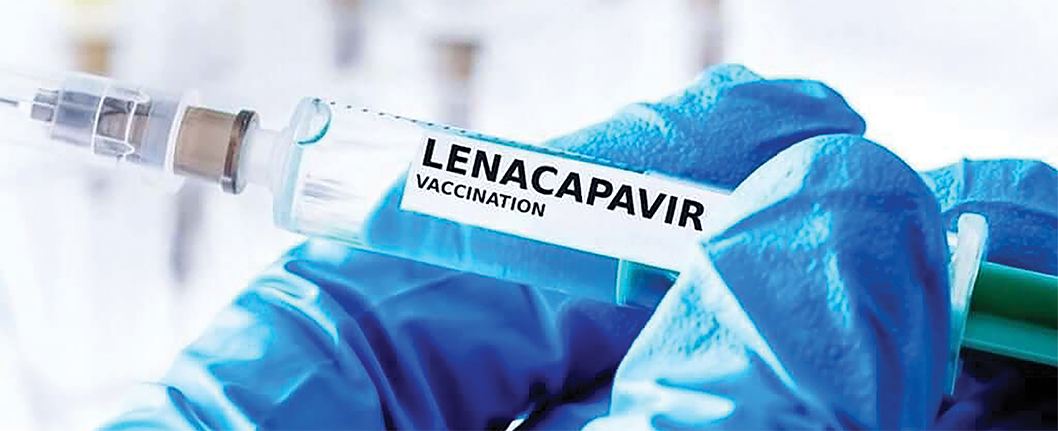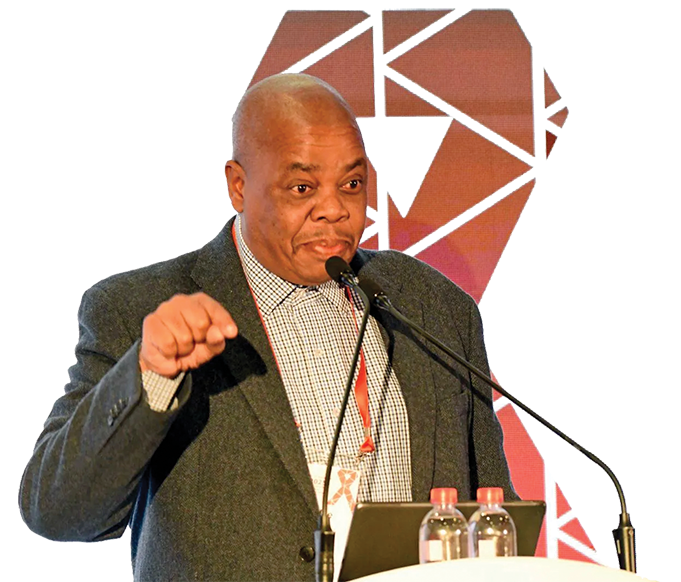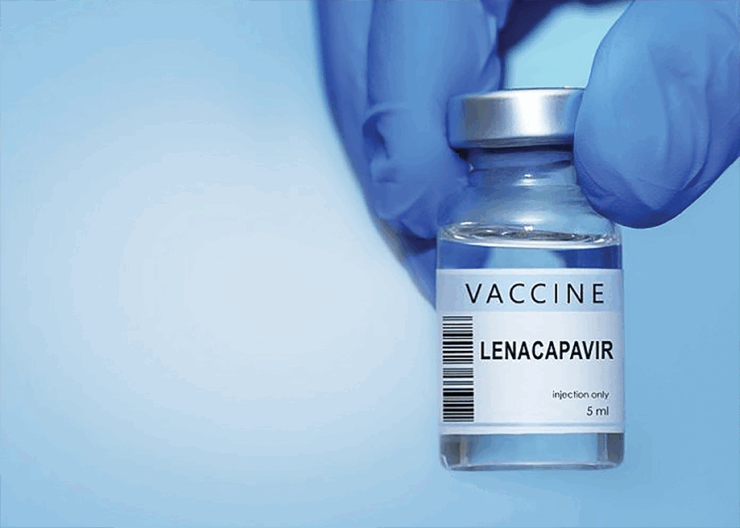DEAL: South Africa, which has around 7.8 million people living with HIV, poised to receive the anti-AIDS prevention injection Lenacapavir in months, though there are mounting concerns over secrecy around its cost…
By Ina Skosana
South Africa may be able to start rolling out lenacapavir (LEN), the twice-yearly HIV prevention jab, in January 2026 – three months earlier than initially planned.
But the details of the agreement that will bring the drug into the country are guarded by non-disclosure agreements (NDAs) – and even the South African National AIDS Council (SANAC) says it doesn’t know what LEN will cost the country at the end of the Global Fund donation in two and a half years.
National Department of Health Director-General, Dr Sandile Buthelezi, told delegates at this week’s South African AIDS conference that US-based Gilead Sciences, the drug’s manufacturer, promised to deliver the first batch as soon as January next year. In fact, the government is pushing for an even earlier delivery, in time for the G20 leaders’ summit, which will be held in Johannesburg in November. “There is a commitment from The Global Fund of US$29 (R500m) million ring-fenced for lenacapavir over the next two and a half years,” says Buthelezi.
Meanwhile, Deputy Minister of Health, Dr Joe Phaahla, has hailed long-acting injectable Lenacapavir as a game-changer poised to revolutionise HIV prevention, especially for adolescent girls, young women, and key populations.
Phaahla stated that modelling studies and expert guidance show that investing in combination HIV prevention strategies is the most cost-effective and efficient approach to reducing new infections and connecting individuals to comprehensive care.
“We believe that HIV combination prevention interventions will ensure that we protect gains and successes made thus far in the HIV response.
“Furthermore, prevention technologies such as long acting injectables, including Lenacapavir, expand options for individuals at risk.”
The Deputy Minister thanked the Global Fund and other partners for selecting South Africa as one of the early adopter countries for Lenacapavir implementation as a pre-exposure prophylaxis (PrEP) option. Lenacapavir tablets and injections can be used as pre-exposure prophylaxis (PrEP) to help reduce the risk of HIV infection in people who are HIV-negative.
South Africa, which has around 7.8 million people living with HIV, is among the first countries set to receive doses of the drug, through an access agreement secured by the Global Fund to Fight AIDS, Tuberculosis and Malaria, which negotiated a price with Gilead. The agreement will make LEN available to two million people in up to 12 low- and middle-income countries with a high HIV burden. PEPFAR recently announced that it would support this initiative.
“We need LEN, but we need transparency,” says Dr Thembisile Xulu. “As the CEO of SANAC, I don’t know the cost of LEN. So how can we make a case with the National Treasury to fund LEN beyond the donation?”
Civil society organisations delivered a memorandum to deputy health minister Dr Joe Phaahla at the conference closing ceremony, calling for the government to reject the NDAs. The group argues that by signing the NDAs, the government is allowing the pharmaceutical company to price the drug out of reach of the masses who need protection.
While delivering the memorandum, Treatment Action Campaign’s Gcinumzi Sawuka said to Phaahla: “Gilead, just like PEPFAR, are bullying South Africa. And instead of challenging them, you are accepting everything that they say.”
Sawuka expressed disbelief to claims that the government is in the dark about the true cost of lenacapavir beyond the Global Fund commitment.
“Maybe you know the price or you’re teaming up with Gilead and the Global Fund at the people’s expense just like it happened with COVID when we lost so many lives,” he says. “We have not forgotten. We will never forget.”
In 2023, the advocacy organisation, Health Justice Initiative (HJI) won a court battle for the release of contracts which showed that South Africa was strong-armed and overcharged for COVID-19 vaccines. Until this judgment, the contracts were protected by NDAs.
“When will you demand the price from Gilead and also insist that the price be made available to all low- and middle-income countries? At what price are you going to budget for more young people to get lenacapavir if you claim that you don’t know the price?”
But Buthelezi says the secrecy is key to ensuring South Africa’s supply.
“There are some NDAs that have been signed because they’ve [Gilead] cut the price so much to supply to us. We’re trying very hard to ensure the security of supply. As a private company, [Gilead] might be tempted to sell to the highest bidder,” he says. “The Global Fund has negotiated a very good price of almost $60 per patient per year.”
According to the Joint United Nations Programme on HIV/AIDS (UNAIDS), 1.3 million people were newly infected with HIV in 2024; 170 000 of these were in South Africa. UNAIDS estimates that 20 million people will need to be reached with antiretroviral-based prevention, such as lenacapavir, to meet the global goal of ending AIDS by 2030.
At the negotiated price, it was reported by Bhekisisa, around 400 000 people in South Africa will get the jab. Activists say that this is an insult: the government should match the Global Fund’s contribution.
“This is a Global Fund and PEPFAR commitment. Where’s the government? We need two million people to be put on the drug, not just those covered by the commitment of international donors. We need domestic funds to be added,” says Dr Siyabonga Nzimande from the civil society forum.
Buthelezi is steadfast in the country’s readiness to roll out the drug. “The issue of LEN is a matter of time,” he says.
“The Gates Foundation and Wits RHI helped us with the plans for the roll-out of lenacapavir, and the money is there. If Gilead says we have drugs by September. We are ready to hit the ground running.” – The story was originally published by Health-e News, and additionally reporting by SAnews.gov.za

































